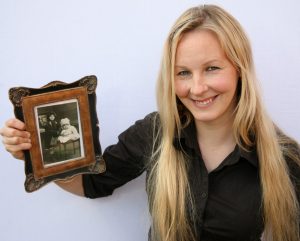
Finnish by birth and now British by profession, Virpi Lummaa has changed the way we think about human reproduction. With over 99 publications, Lummaa is an expert on human life history evolution. Currently she is a Royal Society University Research Fellow in the Department of Animal and Plant Sciences at the University of Sheffield.
Using hard-earned data from microfiche records of weddings, births, and deaths in rural Finland (1730s-1880s), Lummaa compiled one of the most valuable datasets for humans to date. Her research reveals patterns in birth rates (reproduction) and survival in pre-modern humans in the context of boom or bust (famine) conditions. Records for 10 generations coupled with data on ecological conditions (climate and harvests) allowed Lummaa to elucidate much about reproductive patterns in our own species. Her studies are longitudinal and have gradually grown to include data on humans in Mongolia, India, Africa, and Canada.
Questions of interest to Lummaa fall well within the paradigm of this book. Essentially what does it mean to be a female mammal – if that mammal happens to be a human? To address this general question her research investigates several key issues. What are sex differences in life history traits? How does family living and natal dispersal impact fitness? What are the consequences of extreme famine on reproductive performance and survival? Topics she has investigated include: how contraceptive pills impact mate choice, effects of prenatal famine on reproductive success; natural selection on human twinning; and evolution of sex differences in lifespan.
What makes Lummaa’s research distinctive is that she successfully treats us (women) as just another mammal, questions key aspects of our biology, and derives new insights regarding our evolution, for example, infant crying, seasonality of births, polyovulation, abortion rates, age specific maternal effects, mate choice, and the costs of reproduction. As a result of her work we now know that daughters cost mothers less than sons especially in mixed-sex twins.
In recent years Lummaa has started to study other long-lived mammals such as elephants. As a result she has found a relationship between age specific senescence and reproduction in elephants and concluded that unlike ourselves and orca, elephants do not have a complete cessation of reproduction with age (post-reproductive life).
Recognized as an outstanding young investigator by the Association for the Study of Animal Behavior, Lummaa’s focus has become more integrative and resulted in such broad publications as ‘Maternal effects in cooperative breeders: From hymenopterans to humans.’